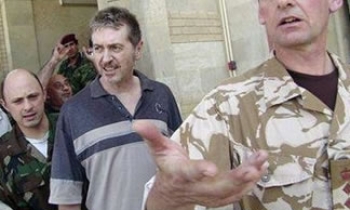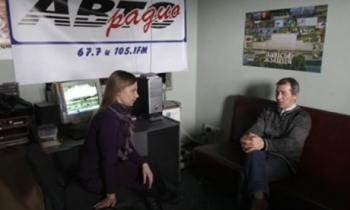BERLIN -- An apology by Denmark's largest newspaper for depicting the Prophet Mohammed in political cartoons failed yesterday to calm a controversy that has ignited fiery protests across the Islamic world and provoked death threats against Scandinavians by Muslim radical groups. Muslim political and religious leaders and jihadists added their voices to the fury already thundering from mosques and blaring from television and radio stations from Morocco to Pakistan.
The statement issued late Monday night by the paper, Morgenavisen Jyllands-Posten, acknowledged that 12 satiric drawings of Islam's most revered figure published last September have generated ''much anger" and triggered a costly economic boycott of Danish goods in the Middle East. The statement marked a sudden turnaround for the newspaper, which for months has insisted that printing political cartoons that are neither obscene nor racist is a basic journalistic right in a democracy.
''They were not intended to be offensive, nor were they at variance with Danish law," editor in chief Carsten Juste said. ''But they have indisputably offended many Muslims, for which we apologize."
The controversy underscored what appears to be growing cultural polarization between Islamic and Western societies -- felt especially in Europe with its swelling populations of Muslim immigrants -- with perceptions diverging sharply on issues such as freedom of expression and rights for women.
Some Muslim groups in Denmark last night said they were satisfied with the newspaper's surprising apology.
''We thank Jyllands-Posten for what they have done," said Kasem Ahmad, spokesman for the country's Islamic Faith Community, in remarks broadcast by Danish radio. ''We have to work now to start a good dialogue about Islam and Muslims."
In the Middle East and North Africa, however, rage seemed to be intensifying, with gun-waggling street demonstrations, denunciations of Denmark by political leaders, and expanding boycotts, according to television and wire service reports.
Industry groups say hundreds of Danish workers have already been laid off as demand for the country's goods has plummeted in Arab and other Muslim lands in recent weeks.
In Tunisia, a group of interior ministers from Arab nations issued a statement yesterday demanding that Denmark ''take the necessary measures to punish those responsible [for] this harm."
In the Gaza Strip, thousands of Palestinian demonstrators chanted ''War on Denmark! Death to Denmark!" while burning flags from Denmark and its two Scandinavian neighbors, Norway and Sweden.
''We feel great rage at the continued attacks on Islam and the Prophet of Islam," Nafez Azzam, a leader of the group Islamic Jihad, told a crowd of gun-toting protesters outside United Nations headquarters in Gaza City, according to Reuters. ''The apology by the newspaper is not enough."
Iran's Foreign Ministry summoned the Danish ambassador to issue a formal complaint and demand an official apology.
Prime Minister Anders Fogh Rasmussen of Denmark said he was personally dismayed by Islamic anger and by any depictions of ''Mohammed, Jesus, or other religious figures" that give offense, but would not condemn the newspaper.
''The Danish government cannot apologize on behalf of a Danish newspaper; [democracy] doesn't work like that," he told reporters in Copenhagen. ''We have explained that to the Arab countries. Independent media are not edited by the government."
In Iraq, meanwhile, Foreign Minister Hoshiyar Zebari yesterday accused the Danish newspaper of ''insult and disrespect . . . to 1.5 billion Muslims."
Even moderate Qatar weighed in. ''Qatar does not accept anything that ridicules Islam or the Prophet," said Sheik Hamad bin Jassim bin Jabr al-Thani, foreign minister of the Persian Gulf state.
The drawings were commissioned after the newspaper's editors learned that Danish artists could not be found to illustrate a children's book on Islam for fear of infuriating Muslim radicals. One showed a scowling Mohammed wearing a time bomb instead of a turban. Another showed Mohammed flanked by two burka-clad women, his eyes blindfolded by a strip of cloth made from the eye-slits of the head-to-toe garments mandatory for women in some Muslim countries.
Islam frowns on most depictions of the human form. Physical representations of the Prophet Mohammed are deemed blasphemous because they might give rise to idolatry, or image-worship.
When they first appeared, the cartoons drew only small protests from Danish Muslims, who number an estimated 270,000 out of a total population of 5.4 million people.
But descriptions of the cartoons spread across the Islamic world in newspapers, on radio talk shows, and on websites, stirring outrage in nearly every part of the Middle East, North Africa, and South Asia. It was only last week that Saudi Arabia, Libya, and other Islamic nations made formal complaints. Meanwhile, organized boycotts of Danish goods were launched in at least 13 Arab countries -- where Denmark is a major supplier of dairy products and pharmaceuticals -- that reportedly cost the Danish economy millions of dollars.
Saudi Arabia this week recalled its ambassador from Denmark while Libya shuttered its embassy in Copenhagen to protest the Danish government's refusal to ''discipline" the newspaper.
In the Palestinian territories, the militant Al Aqsa Martyrs' Brigade faxed a warning to the Swedish Consulate in Jerusalem on Monday demanding that all Danes and Swedes depart Gaza and the West Bank ''within 48 hours, or else." It was unclear why Swedes were included in the threatening message, but both countries urgently warned their citizens against travel to the region.
Hamas, the Muslim militant group that last week won control of Palestinian parliament, issued a statement calling upon Islamic nations to take ''deterrent steps against idiotic Danish."









